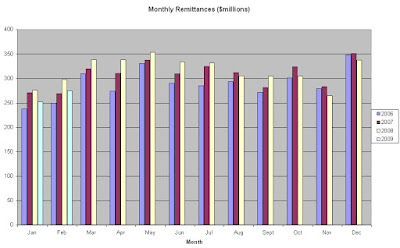A Safe City for Women
An article in the Christian Science Monitor's Global News Blog highlights efforts to make Suchitoto a city where violence against women is rare: SUCHITOTO, EL SALVADOR – Time seems to have stood still in the colonial town of Suchitoto, about 30 miles from El Salvador’s frenetic capital, with its quiet cobblestone streets and perfectly preserved architecture. But now its white-washed walls are adorned with a 21st-century message: “In this house we want a life without violence toward women.” The words, which are accompanied by a bird and flower, the symbol of Suchitoto, forms part of a campaign by the Feminist Collective for Local Development to “elevate societal rejection of domestic violence, and make it a subject we should all be worried about,” says local feminist activist Morena Herrera. It seems to have worked: The overall impression, reading the message on home after home – where women sweep their front porches and men gather in rocking chairs to talk on lazy afternoons – i...



